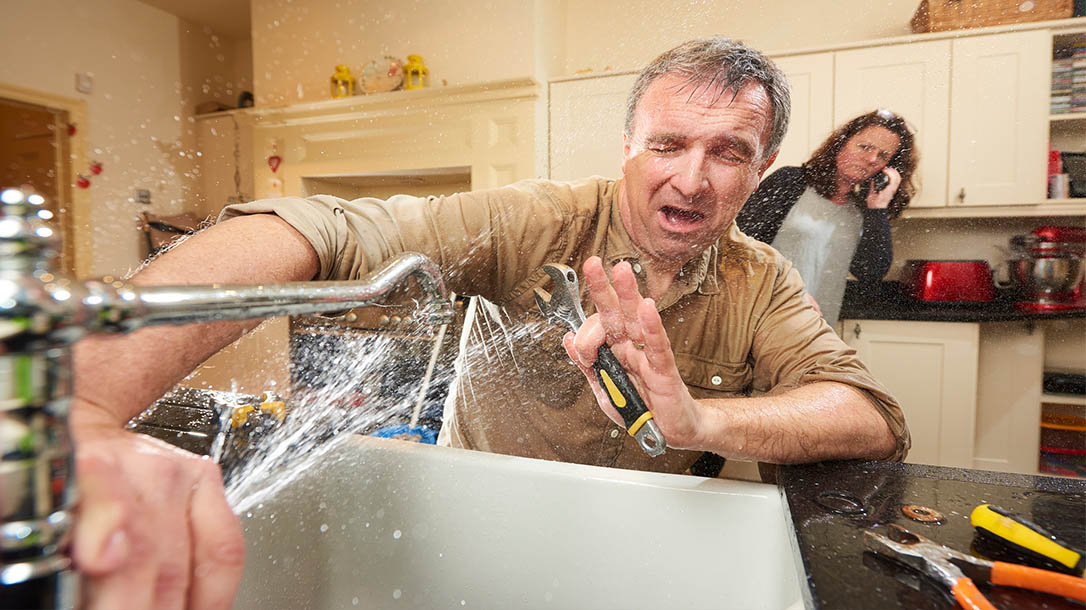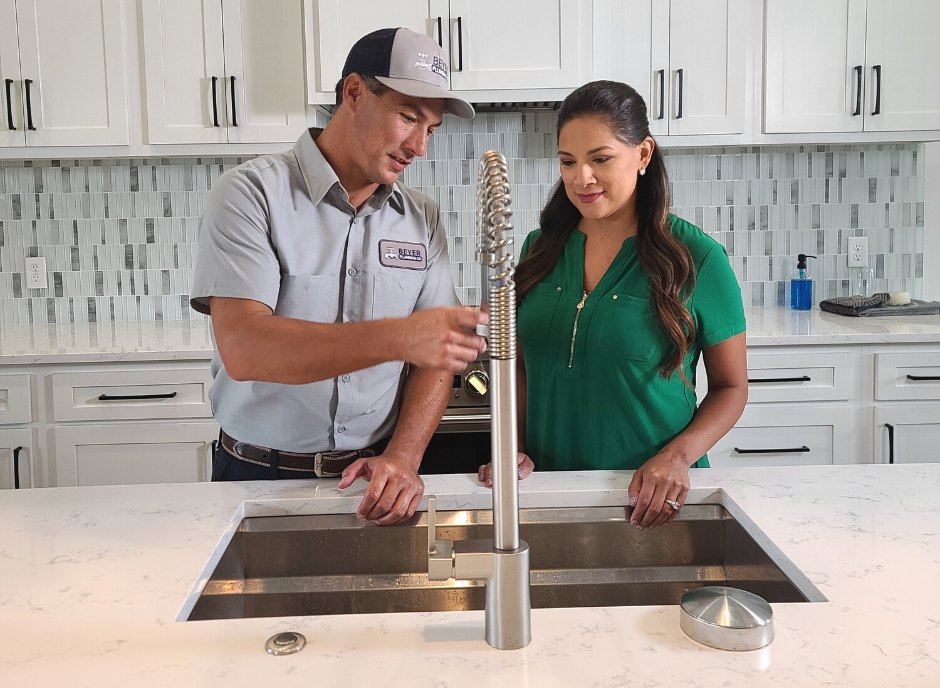Are you currently in search of details about Why Is It Important To Fix Your Leaking Tap/Faucet??

Dripping faucets might feel like a small trouble, however their impact goes beyond simply the aggravation of the sound. From wasting water to incurring unneeded financial prices and wellness threats, ignoring a dripping tap can bring about numerous repercussions. In this short article, we'll delve into why it's vital to address this usual house problem immediately and properly.
Waste of Water
Ecological Influence
Leaking faucets contribute dramatically to water wastefulness. According to the Environmental Protection Agency (EPA), a single faucet trickling at one drip per second can throw away greater than 3,000 gallons of water each year. This not only strains water sources yet additionally influences communities and wild animals dependent on them.
Financial Expenses
Enhanced Water Expenses
Past the ecological influence, trickling faucets can pump up water bills considerably. The built up wastage gradually translates right into greater utility expenses, which can have been stayed clear of with prompt repairs.
Potential Residential Property Damages
Additionally, extended leaking can result in damage to components and surface areas bordering the faucet. Water accumulation can cause staining, corrosion, and also architectural problems if left unattended, resulting in added fixing costs.
Health Concerns
Mold And Mildew and Mold Development
The consistent presence of dampness from a trickling faucet creates an ideal environment for mold and mildew and mildew development. These fungis not just endanger interior air high quality but also posture wellness dangers, particularly for people with breathing conditions or allergic reactions.
Waterborne Illness
Stagnant water in trickling faucets can become a breeding place for bacteria and various other microorganisms, increasing the danger of waterborne diseases. Impurities such as Legionella germs grow in stagnant water, possibly resulting in major ailments when ingested or breathed in.
DIY vs. Specialist Repair work
Pros and Cons of DIY Fixing
While some may attempt to deal with a leaking tap themselves, DIY repair services come with their own collection of challenges. Without appropriate expertise and tools, do it yourself efforts can exacerbate the problem or bring about incomplete repair services, lengthening the problem.
Benefits of Working With a Professional Plumber
Employing an expert plumber makes certain that the underlying cause of the leaking tap is resolved efficiently. Plumbing professionals have the knowledge and devices to detect and fix tap issues efficiently, saving time and minimizing the risk of additional damage.
Step-by-Step Overview to Taking Care Of a Dripping Tap
Devices Called for
Prior to trying to fix a dripping tap, collect the needed devices, consisting of a flexible wrench, screwdrivers, substitute components (such as washing machines or cartridges), and plumber's tape.
Usual Tap Issues and Their Solutions
Recognize the kind of tap and the particular problem triggering the drip. Typical issues include worn-out washers, corroded shutoff seats, or faulty O-rings. Describe supplier guidelines or on-line tutorials for step-by-step assistance on repair work.
Preventive Measures
Regular Maintenance Tips
To stop trickling taps, carry out routine maintenance such as cleansing aerators, evaluating for leaks, and changing damaged components without delay. In addition, consider installing water-saving devices or updating to extra reliable components.
Value of Prompt Repair Works
Dealing with dripping taps as soon as they're noticed prevents additional water waste and prospective damage, ultimately saving both water and money over time.
Impact on Residential Property Worth
Assumption of Well-Maintained Building
Preserving a residential or commercial property in good condition, including resolving upkeep problems like trickling faucets, improves its regarded value and charm amongst possible customers or tenants.
Impact on Resale Worth
Residences with properly maintained plumbing fixtures, consisting of faucets, command greater resale values in the realty market. Dealing with leaking faucets can contribute to a favorable impression throughout home inspections and arrangements.
Environmental Obligation
Specific Contribution to Conservation
Taking obligation for fixing leaking taps straightens with broader efforts towards water conservation and environmental sustainability. Every individual's activities collectively make a considerable influence on preserving valuable sources.
Lasting Living Practices
By focusing on punctual fixings and embracing water-saving practices, people add to sustainable living practices that profit both existing and future generations.
Final thought
Dealing with a leaking tap surpasses mere convenience; it's a necessary action towards conserving water, decreasing economic costs, and securing health and building. Whether through DIY repair work or expert help, doing something about it to take care of trickling taps is a tiny yet impactful way to promote accountable stewardship of resources and contribute to a healthier, extra lasting future.
How to Fix a Leaky Faucet: Step-by-Step Repair Guide
A leaky faucet may seem like a simple annoyance, but if it's not fixed promptly, that leak could cost hundreds to potentially thousands. From water damage to mold, mildew, and high water bills, even a tiny leak can be catastrophic if left unattended. Damage like this can even affect the overall value of your home, so it's important to take the right approach for leaky faucet repair. You may need the help of a plumber in some cases, but we've got a few tips you can try on how to fix a leaky faucet before calling the pros.
Four Faucet Types
When you're learning how to fix a leaky faucet, the first step is knowing what kind of faucet you're working with! There are four common types.
Cartridge Faucets
Cartridge faucets come in one- or two-handled varieties. In one-handled cartridge faucets, hot and cold water combines in a single cartridge. In the two-handled versions, hot and cold water are controlled separately and mixed in the faucet.
Ball Faucets
Ball faucets have a single lever you push up and down to adjust the pressure and rotate to change the temperature. A slotted metal ball controls the amount of water allowed into the spout.
Compression Washer Faucets
They're the oldest type of faucet, but they're still used in many homes — especially older ones. Compression faucets have two separate handles that, when turned, raise or lower the washer that seals a water valve. This valve stops water from flowing through the faucet when it is turned off.
Disc Faucets
Disc faucets rarely need to be repaired due to their maintenance-free design. The water flow is controlled by two discs — the upper one raises and lowers against a fixed lower disc, creating a watertight seal. If your disc faucet starts leaking, you may need to replace the seals or clean residue buildup from the inlets.
Fixing a Leaky Faucet
Step 1: Turn Off the Water
Whether you're learning how to fix a leaky bathtub faucet or how to fix a leaky kitchen faucet, always turn off the water supply to your working area when you're fixing a leak. The last thing you want is a flood added to your list of things to fix.
Look for the shutoff valves below your sink or around the tub and turn them clockwise to stop the water flow. If your faucet doesn't have shutoff valves, you may need to turn off the water for the whole house. Check to make sure it's off by turning the faucet on. If nothing comes out, you're ready to start the repair.
Step 2: Take Apart the Faucet
How you disassemble your faucet depends on the type of fixture you have. You can use a flathead screwdriver to remove the caps on top of the handle or handles for cartridge and compression faucets. Inside, you should see handle screws. Unscrew these with a screwdriver to remove the handle.
Disc- and ball-style faucets will typically have an inlet screw near the handle, and removing that will reveal the interior of the faucet.
Detach the Valve Stem
For cartridge- and compression-style faucets, you'll see the inner valve stem or cartridge once you remove the faucet handles. If you have a compression faucet, unscrew the brass valve stem. If you have a cartridge faucet, pull out the cartridge. If your cartridge has been in place for a while, it may require some tools or extra force to remove it due to mineral deposits.
Examine and Replace Parts
Once you've removed the parts, check them out to confirm what needs to be replaced. You may see corroded rubber washers, O-rings, stems, or cartridges. On a ball-style faucet, check the seats and springs for damage.
If you need to repair a leaky disc faucet, check the inlet and seals on the lower disc.
Once you determine what parts must be replaced, visit your local hardware store. Bring the damaged parts with you to ensure you can purchase the correct components to replace them.
Clean Valves and Faucet Cavity
If you've removed a stem or cartridge, you may notice mineral buildup in the faucet's threads. Use white vinegar to clean the valve seat by soaking it for a few minutes, then scrub it away with a soft toothbrush and rinse with warm water. You can also clean the interior of the faucet in the same way.
Reassemble the Faucet
Once your faucet is cleaned and the required parts have been replaced, it's time to reassemble it. Put the pieces back together and slowly turn the water supply back on. Doing this slowly is crucial because too much initial water pressure can damage the new hardware you've just installed.
https://homewarranty.firstam.com/blog/how-to-fix-leaky-faucet

Hopefully you enjoyed our article about Leaky Faucets: Why They Happen & What to Do About Them. Thanks a lot for taking a few minutes to read our blog post. Sharing is good. Helping others is fun. Thank-you for going through it.
Comments on “When It's Vital to Fix a Leaking Faucet”